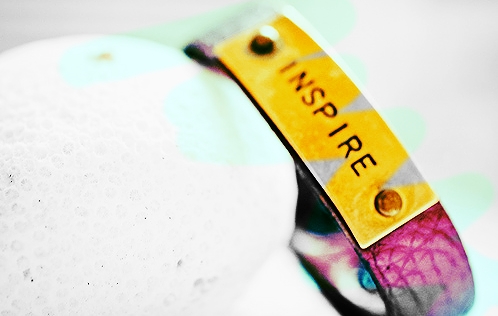The heart of healthcare should be applied throughout a patient’s experience with a hospital – including their trip through the revenue cycle. Maintaining compassion, care, and respect even while dealing with patient balance collections has a positive effect on patient relations and revenue recovery. Let’s look at a few simple principles you can apply that yield fruit in both these categories.
I’m sure you’ve heard the precept that treating people with respect and looking for the good in them encourages and inspires folks to be their best. We’ve all had a coach, or teacher, or parent who made us feel we were worthy of being believed in. People tend to respond when someone shows belief in their ability to rise up.

Encourage and inspire patients all along the way… Photo courtesy of chattygd(CC Attribution)
And that brings us to our topic. Encouraging people to a higher standard in covering their medical bills is absolutely possible – we do it every day. It starts with simply respecting reasonable wishes, as it relates to fulfilling their obligation. If patients want to make payment directly to the hospital who healed them, rather than some third party collections, allowing them to do so is respectful. If their circumstance dictates a need to make payments on their balance, making that available actually gives patients the honor inherent in taking care of their responsibilities. It’s a matter of principle among many in the senior generation.
I hate it when I hear of collection agencies not allowing people to make payment plans. There is no good reason, not from the hospital nor the patient’s standpoint, for denying payment arrangements. Yet it happens every day. How do you think that makes these patients feel who want to do the right thing? How do you think it makes them feel about your hospital?
The Right Heart For Hospital Collections
I’ve been to hospitals. I’ve had doctors and staff who melted my heart with their tender concern for my well-being… and I’ve had those who clearly seemed to be doing their work for more hollow reasons. They’re rare, but there nonetheless. Far more often you meet those with the courage to care.
And don’t you want to do things for people who care about you? Well, when people sense your compassion for them, they’ll be more willing to work with you. Patients feel a natural bond with people who heal them. That’s why they should always be allowed to go back and make arrangements and pay the people who healed them directly, once properly motivated.
That motivation comes from establishing accurate communication, and sharing that a reasonable repercussion exists if they don’t get in touch with you and work something out. A patient in communication is more conscientious and sensible than one who isn’t. And, when treated with respect, people are more apt to do the right thing. Especially when you tell them why paying their bill is so important.
Explain to patients how these days, new patients depend on previous patients making their payments, so access is there when it’s needed again. Give them perspective on the very real interdependence inherent in the today’s medical system. Helping patients realize that they’re making sure the hospital is there for the next person (who might be them) has a way of inspiring a more noble perspective in them.
The heart of restoration should carry throughout all hospital operations – even the revenue cycle. A hospital’s healing manner doesn’t have to stop when billing begins.